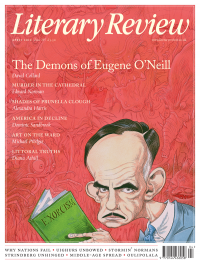Jonathan Derbyshire
Say What You Mean
Iris Murdoch, Philosopher: A Collection of Essays
By Justin Broackes (ed)
When Iris Murdoch returned to Oxford in the autumn of 1948 to take up a fellowship at St Anne’s College, after a brief sojourn in Cambridge where she’d gone with the intention of beginning a PhD on Edmund Husserl, she found herself at the centre of the English-speaking philosophical world. The years after the Second World War were a sort of golden age for philosophy in this country, and the discipline flourished especially by the banks of the Isis, under the aegis of two men in particular – J L Austin and Gilbert Ryle.
Austin and Ryle were the leading lights of so-called ‘ordinary language’ or ‘linguistic’ philosophy, which viewed the purpose of the subject as the study of the words or concepts we employ, rather than of the facts or phenomena to which those concepts are applied. The ordinary language philosophers saw philosophy

Sign Up to our newsletter
Receive free articles, highlights from the archive, news, details of prizes, and much more.@Lit_Review
Follow Literary Review on Twitter
Twitter Feed
It wasn’t until 1825 that Pepys’s diary became available for the first time. How it was eventually decrypted and published is a story of subterfuge and duplicity.
Kate Loveman tells the tale.
Kate Loveman - Publishing Pepys
Kate Loveman: Publishing Pepys
literaryreview.co.uk
Arthur Christopher Benson was a pillar of the Edwardian establishment. He was supremely well connected. As his newly published diaries reveal, he was also riotously indiscreet.
Piers Brendon compares Benson’s journals to others from the 20th century.
Piers Brendon - Land of Dopes & Tories
Piers Brendon: Land of Dopes & Tories - The Benson Diaries: Selections from the Diary of Arthur Christopher Benson by Eamon Duffy & Ronald Hyam (edd)
literaryreview.co.uk
Of the siblings Gwen and Augustus John, it is Augustus who has commanded most attention from collectors and connoisseurs.
Was he really the finer artist, asks Tanya Harrod, or is it time Gwen emerged from her brother’s shadow?
Tanya Harrod - Cut from the Same Canvas
Tanya Harrod: Cut from the Same Canvas - Artists, Siblings, Visionaries: The Lives and Loves of Gwen and Augustus John by Judith Mackrell
literaryreview.co.uk